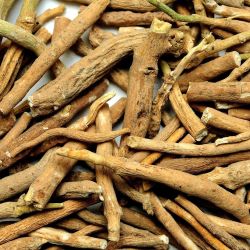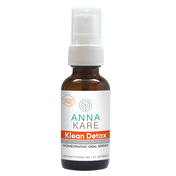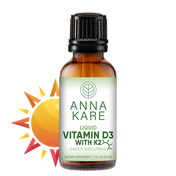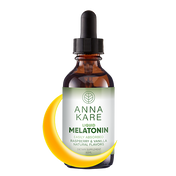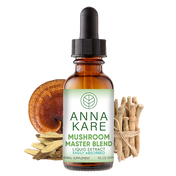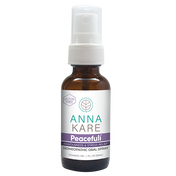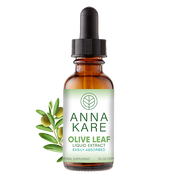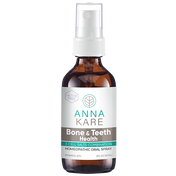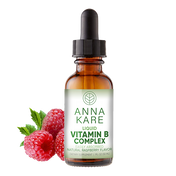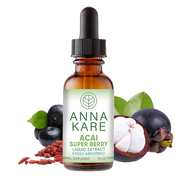We have all heard the proverb, "An apple a day helps keeps the doctor away." There is much to be said about eating a diet high in fresh fruits, veggies, and lean proteins. Our body needs nutrients without all the added sugars and refined ingredients in processed foods to stay strong and fight disease.
Inflammation is a natural response of our body to injury and unhealthy lifestyle choices. Another main cause of chronic inflammation is a poor diet. It can lead to a host of health problems, including weight gain, nutritional deficiency, arthritis, metabolic disorders, and more.
Uncover what foods cause inflammation in the body so you can eat less of them.
5 Inflammatory Foods to Avoid or Reduce
Processed foods are often high in sugar, unhealthy fats, and additives that can lead to inflammation in the body. Over-consumption of dairy products as well as alcohol can also cause inflammatory effects.
Here are the five main inflammatory foods to avoid:
1. Sugar and Sweetener Alternatives
Sugar is used by your cells to produce energy. When you ingest too much sugar or processed sweetener alternatives like high-fructose corn syrup, it is stored in your fat cells and can cause inflammation, weight gain, insulin imbalance, and metabolic health conditions, such as diabetes and high blood pressure.
Natural sugar alternatives like stevia, agave nectar, coconut sugar, pure maple syrup, or honey offer a significantly lower glycemic index than refined sugars. Plus, naturally occurring sugars can also contain valuable nutrients.
The glycemic index or GI is a way of measuring how foods affect blood sugar levels. The GI measures foods on a scale of 0-100. A medium GI food is rated 59-69.
Sweeteners differ in glycemic index, calories, and nutritional value!
Below is a list of sweeteners in order of glycemic index from least to greatest. Stevia has the lowest glycemic index and no nutritional value. White sugar and high fructose corn syrup are the worst, with the highest glycemic numbers and no nutritional value.
- Stevia comes from the leaves of the stevia plant and has a glycemic index of zero. Stevia contains little to no calories, fats, carbs, proteins, or nutrients.
- Agave nectar comes from the blue agave plant grown in warm, dry climates in North America. It has a glycemic index of 15 and contains 60 calories per tablespoon along with small amounts of carbohydrates, and vitamins B2, B6, B9, and K.
- Coconut sugar is derived from coconuts and has a glycemic index of about 35 and 45 calories per tablespoon. It contains minerals like iron, zinc, calcium, and potassium as well as the phytonutrient of polyphenol with antioxidant benefits.
- Maple syrup comes from the sap of a maple tree with an index of 54. It has about 52 calories per tablespoon and is an excellent source of the mineral manganese and riboflavin (vitamin B2). It also contains zinc, copper, iron, calcium, potassium, and magnesium. It offers antioxidant benefits and may also help with hydration related to its mineral content.
- Honey has a glycemic index of 58 with 60 calories per tablespoon. Vitamin and mineral content depends on the variety of honey, which can include vitamin B, potassium, iron, calcium, copper, iron, and zinc. Honey and its phytonutrients have been researched for a variety of health benefits. It offers antioxidant and antimicrobial activities and may help reduce allergies, infections, and respiratory congestion.
- White sugar has a glycemic index of 60 and no nutrients. It contains 48 calories per tablespoon.
- High fructose corn syrup has a glycemic index of 73 and 53 calories per tablespoon with no nutrients.
Note that all sugars should be eaten in moderation. The Dietary Guidelines of America suggest that sugar should represent less than 10% of our calorie intake per day (1).
For an adult who eats 2,000 calories, this would equal less than 200 calories from sugar. Be sure to look at the nutritional content of packaged foods for their sugar content, especially:
- Bottled drinks, including sports drinks, energy drinks, and juices
- Candy, chocolate, cookies, and pastries
- Ice cream and yogurt
If you need a little pick-me up, here is a list of healthy snack options:
- Nuts and Seeds
- Fresh and dried fruits
- Raw or oven-roasted vegetables
- Hard boiled eggs
- Dark chocolate in moderation
2. Refined Vegetable Cooking Oils
Vegetable oils that are highly refined are stripped of valuable nutrients including vitamins, minerals, and phytonutrients. This can include processing with heat or chemical solvents to increase the oil's shelf life and to make it better suited for high-heat cooking.
What causes inflammation is the body is the refined oils, which can be more difficult for our body to assimilate and cause fatty build-up and inflammation in our tissues.
You can find them in the cooking oil aisle in your grocery store or as an ingredient in packaged foods. Vegetable oils that are often refined include canola, corn, cottonseed, peanut, rice bran, safflower, sesame, sunflower, and soy oils.
Examples of healthy cooking oils are cold processed and unrefined oils like olive, avocado, walnut, hemp, and flax seed oil, which maintain their nutritional value.
3. Hydrogenated Oils
Hydrogenated oil can be fully or partially hydrogenated. It involves a process where hydrogen is added to fats that are normally liquid at room temperature. Food manufacturers use hydrogenated oil to extend the longevity of processed foods (2).
Partially hydrogenated oil, also called trans fat, is the worst of all fats and was declared unsafe by the FDA in 2015. It had to be phased out by 2018, but may still be present in some foods.
While fully hydrogenated oil is still allowed, that doesn't mean it is healthy. The good news is that avoiding ultra-processed foods will help reduce your exposure to hydrogenated oils and trans fats.
Ultra-processed foods include:
- Margarine
- Coffee creamers
- Frosting
- Many backed goods
- Snack foods
- Frozen meals
- Breakfast cereals
- Canned food and soups
- Deli meats
- Instant noodles and pasta products
4. Dairy Products
Many people have lactose intolerance and get digestive symptoms like bloating and cramps when they eat dairy foods like milk, butter, yogurt, and cheese. Further, dairy foods are high in saturated fats, that can increase inflammatory issues (3).
If you feel indigestion from eating dairy, you may want to choose non-dairy plant-based alternatives. These include almond, cashew, coconut, hemp, flax, oat, and rice milks.
Watch out for overly processed plant milk, though, by carefully reading the nutritional information! If you are up for it, it’s easy and healthy to make your own fresh plant milk at home with a high-speed blender.
5. Alcoholic Beverages
Drinking alcohol can affect your blood sugar balance. This is because it interferes with the liver’s ability to do its job of making and releasing glucose.
While drinking one glass of red wine with dinner can offer healthy benefits, excessive drinking, drinking on an empty stomach, and certain alcohols can really have a negative effect on blood-sugar levels.
Sugary cocktails (like a daiquiri or margarita) can be the worst offenders.
3 Natural Remedies to Fight Inflammation
In addition to eating a healthy diet, the following lifestyle choices are important to help reduce pain and inflammation: exercise regularly, stop cigarette smoking, and reduce stress!
There are also homeopathic remedies and herbal supplements that can be taken to holistically help reduce inflammation and aching joints and limbs.
1. Homeopathic Remedy Arnica Montana
Arnica is the world's best-selling homeopathic medicine. The arnica plant has natural anti-septic and anti-inflammatory properties, stimulates circulation, and helps reduce swelling, pain, and stiffness.
2. Herbal Supplement Fresh Turmeric Liquid Extract
Turmeric root is likely the leading herbal supplement taken to reduce inflammation and known for its exceptional anti-inflammatory benefits helping reduce joint pain and digestive upsets.
3. Schuessler Tissue Salts
Schuessler tissue salts, often called cell salts, help establish and maintain a healthy microbiome to reduce inflammation markers and support the regeneration of healthy cells and tissues.
Read more about natural relief from joint pain and inflammation with homeopathy, natural anti-inflammatory supplements, and Schuessler cell salts.
In Summary…
Eating healthy is important! Processed foods contain ingredients that can cause an inflammatory response in our body. Choose healthy alternatives and try natural remedies for inflammation, aches, and pains like homeopathic Arnica Montana, AnnaKare Fresh Turmeric Liquid Extract, and Schuessler tissue salts.
References
- Sullivan, C. (2021). A look at the 2020–2025 Dietary Guidelines for Americans.
- Fletcher, J. (2021). What is Hydrogenated Oil and is it Safe?
- Van De Walle, G. (2020). Is Dairy Inflammatory?
The information in this article is grounded in traditional homeopathic and natural wellness practices. Products and information are not intended to treat, diagnose, prevent, or cure any disease and are not evaluated by the Food and Drug Administration.




